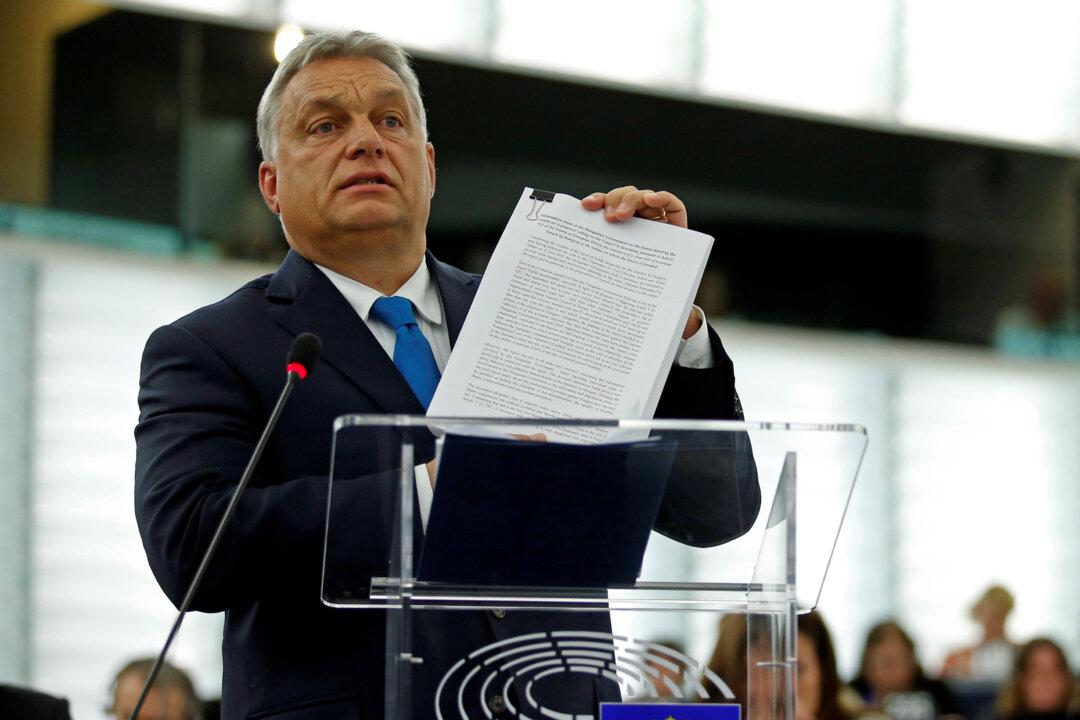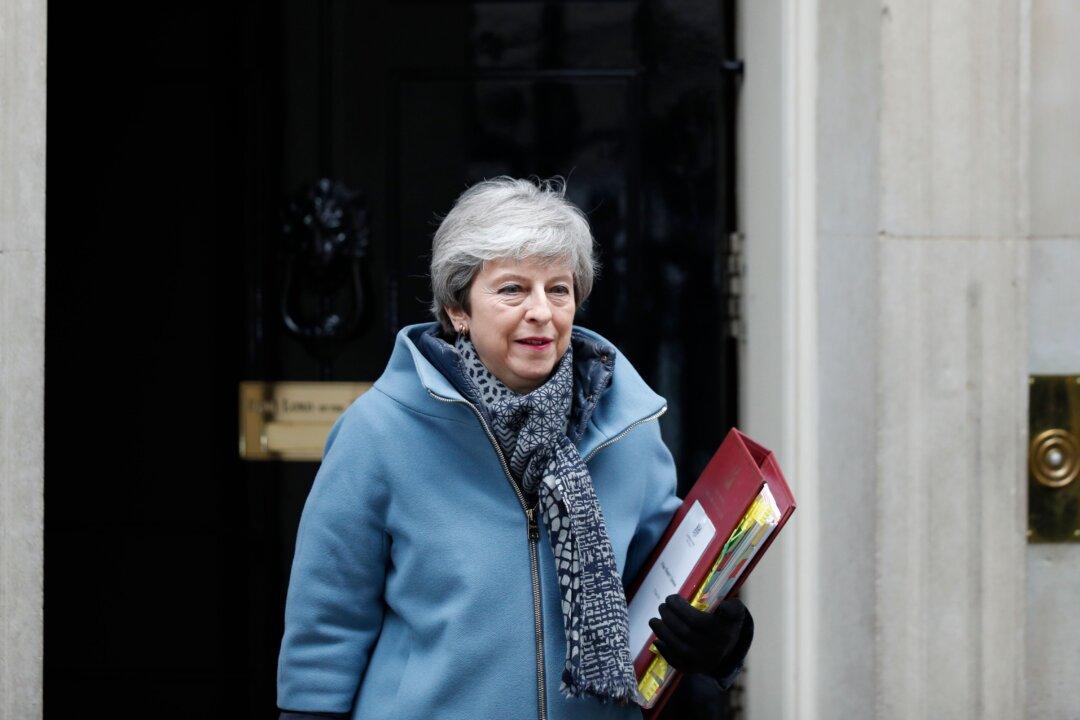LONDON—Hungary has been left isolated following a European Union vote to pursue disciplinary action against the country after it broke EU rules on democracy, civil rights, and corruption.
The vote was passed by a more than two-thirds majority on Sept. 12, with many of Hungarian Prime Minister Viktor Orban’s conservative allies deserting him. Poland, however, said it would veto any sanctions imposed by the bloc on Hungary, meaning the disgraced country has little chance of being suspended from voting in the EU.




